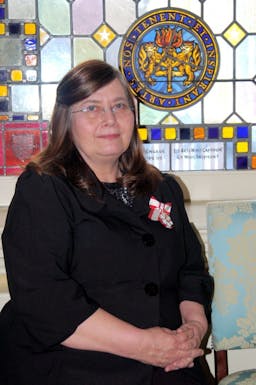My vision
Jan 21, 2015
Story
As a child living in violence I was robbed of a vision for the future, but as I recovered from the trauma related to that experience my sense of place and purpose re-asserted itself. I am not sure I would have moved to an internalized knowledge of where I stood as a contributor to change in the world without engaging in a recovery process, but I do know if I had been supported within an empowering context the journey to self-discovery would have been significantly shorter. Passing on knowledge and skills to young women and particularly my daughter and granddaughter in a way that acknowledges and respects their leadership style is important to me. I want to continue supporting women who are marginalized and struggle with self-doubt, not yet realizing their full potential because of a misplaced reliance on the perceptions of others who diminish their value as a contributor to societal good within their own community and mainstream society. I would like to mentor a young, Indigenous woman to assume my role as Executive Director for the Centre for Northern Families so I can focus on specific writing projects that highlight the circumstance of women in the North and around the world. Through my writing I want to challenge the status quo and cause those who are content with life to strive for more for themselves, their communities and nations. I want to fulfill my destiny on this earth, acknowledge the Lordship of Jesus in my life and work and celebrate victories and achievements with my peers and family.
In terms of the City of Yellowknife, the Northwest Territories and Canada I envision a place where each person is valued and respected within their diverse contexts. It will be a difficult road to travel given Canada’s self-satisfaction around their “charitable” treatment of the most vulnerable of its citizens and the global communities’ buy-in to that propaganda. As one of the richest countries in the world economically speaking, it is a grievous tragedy and should be an international embarrassment that the vast majority of Aboriginal communities in Canada live in what some people refer to as “3rd world” conditions. Aboriginal people are politically, socially and economically marginalized, women are not protected from violence and their children are apprehended at epidemic rates by the state. The Government of Canada refused to sign onto the Declaration on the Rights of Indigenous Peoples on the basis it was in the best interest of Aboriginal people not to do so, a historical practice that belies their apology and commitment to establishing new, equal relationships. I want decision-makers and service providers in my country to shift from a position of smugness, self-righteousness and self-protection to a place self-reflection and accountability for their deliberate, structured, ongoing oppression of vulnerable citizens. I want them to invest wealth they have realized from the robbery of lands and resources into correcting the damage they perpetrated against Aboriginal families and communities in the name of Canadians. I want the Government of Canada to sign on to the Declaration on the Rights of Indigenous Peoples and fulfill their international treaty obligations around equality rights. In keeping with that, I want a national structure in place to gather the voices of women, and in particular Aboriginal women, so their lived realities are reflected in what is presented by my country to the world.
“Evil flourishes when good (wo)men do nothing.” “Knowledge is power.” These two mottos guide my work. Becoming a Voices of Our Correspondent is important to me. I enjoy writing and I am confident in my ability to fulfill that role with further training and mentoring. Isolation and silencing are key factors that enable oppression to persist in families and in communities. Creating space for women to tell their stories and making sure they have the tools to document them is a critical facet of empowerment and accountability. I want to be a Voices of Our Correspondent so I can contribute to that effort. Local stories of girls and women in the North are important to the global community in terms of exploring experiences that are common and different and sharing solutions to contemporary problems from a traditional Aboriginal perspective.




